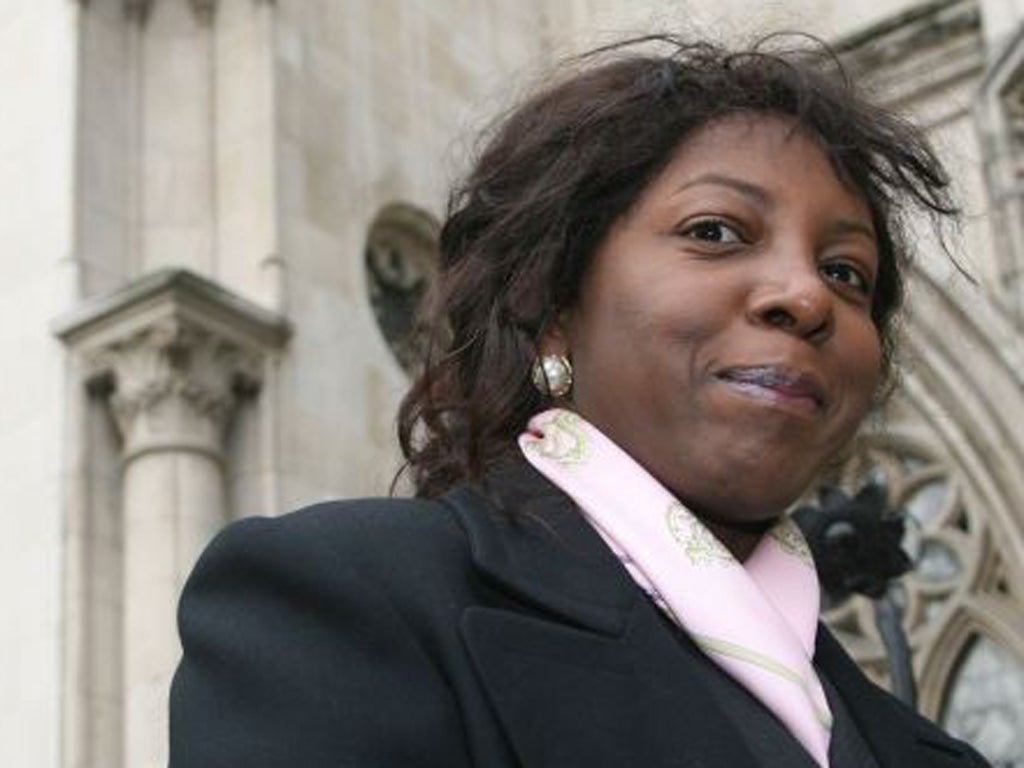Constance Briscoe, judge who wrote 'misery memoir', suspended after arrest

One of Britain’s few black women judges, who shot to prominence six years ago with a “misery memoir” about her tough early life, has been arrested and questioned by police.
Constance Briscoe, 55, was arrested in Clapham, south-west London, at the weekend by officers from Kent and taken to a police station for interview. She was later released on bail pending further inquiries.
Kent police declined to name the arrested woman or say why she had been arrested. “A 55-year-old woman was arrested on Saturday in Clapham, south London, interviewed by officers and bailed pending further inquiries,” a spokeswoman said.
A spokeswoman for the Office for Judicial Complaints said: "The Lord Chief Justice and Lord Chancellor have suspended Constance Briscoe from the judiciary pending the outcome of the police investigation into the allegations against her. It would be inappropriate to comment further whilst the investigation is active."
Ms Briscoe, the daughter of Jamaican immigrants, is one of the better-known members of the legal profession owing to her writing, an appearance on the BBC television programme Question Time and regular mentions in the society pages of newspapers.
Ms Briscoe’s profile grew with the publication of her 2006 book Ugly, in which she detailed a traumatic childhood and described how her mother neglected her, beat her for wetting the bed and taunted her over her looks. Ms Briscoe’s mother, Carmen, took legal action against her daughter over her depiction in the book, but a jury found in favour of the author.
Ms Briscoe followed it with a second book, Beyond Ugly, which details how she left home, rebuilt her confidence with the help of plastic surgery and made her way in the legal world. She was a panellist on Question Time last year when she criticised a “something for nothing” attitude in Britain where too many people were subsidised for not working.
Her personal life was given further airing in diary columns this summer following the ending of her long relationship with Anthony Arlidge QC, a leading barrister.
Ms Briscoe, a mother-of-two, was called to the Bar in 1983 and appointed a Recorder – a part-time judge – 13 years later. The post requires a minimum of 15 days working in the Crown Court each year.
Colleagues at her chambers said she was in meetings and several approaches for comment from Ms Briscoe about the matter were not returned.
